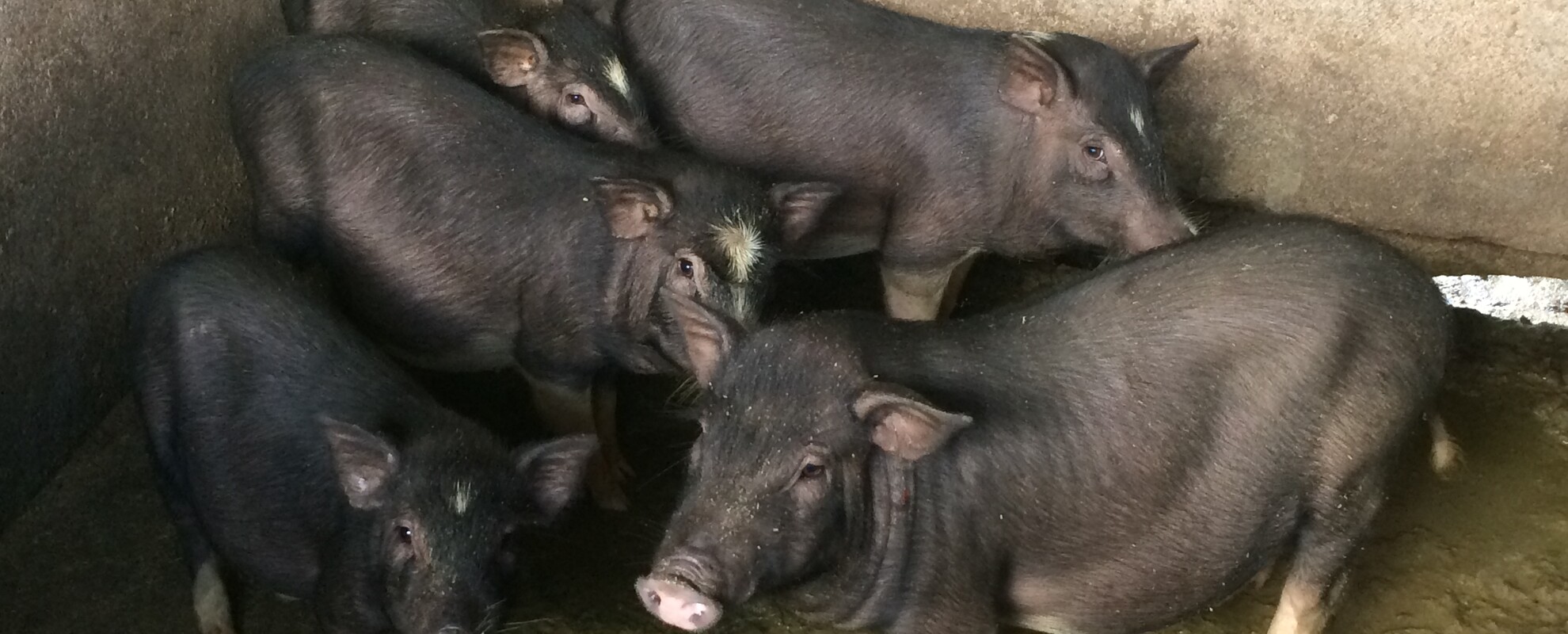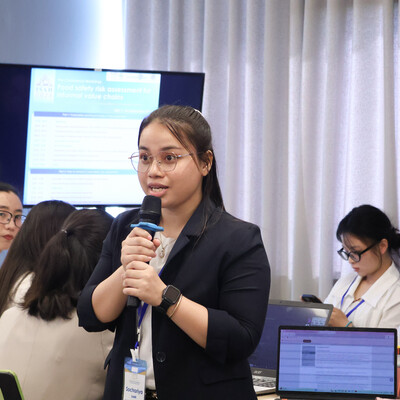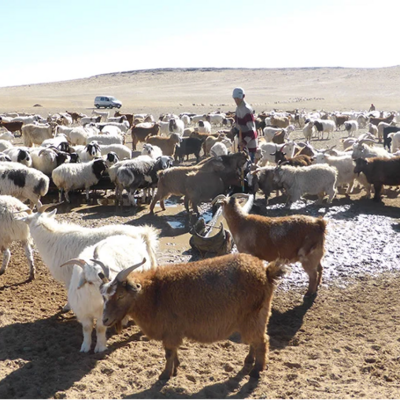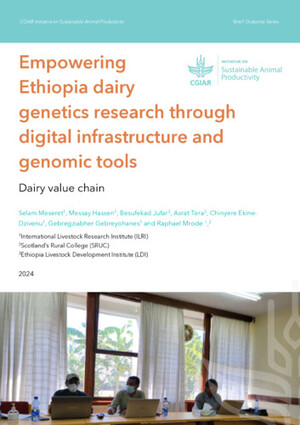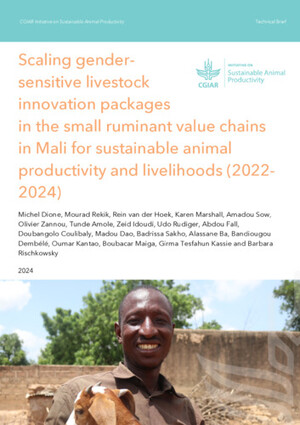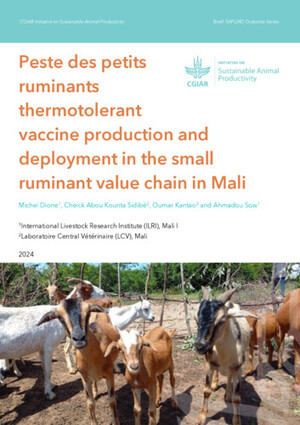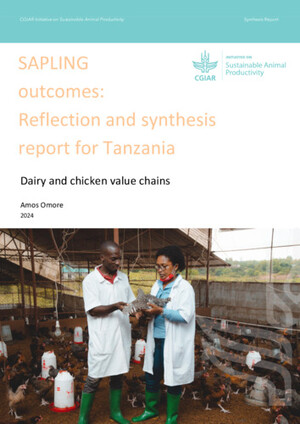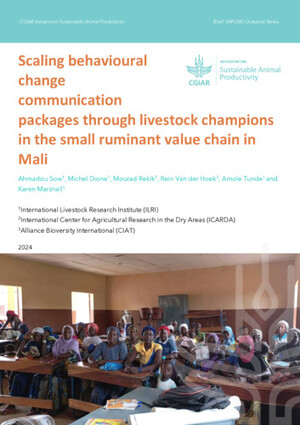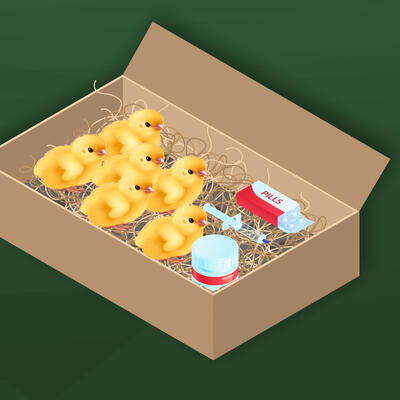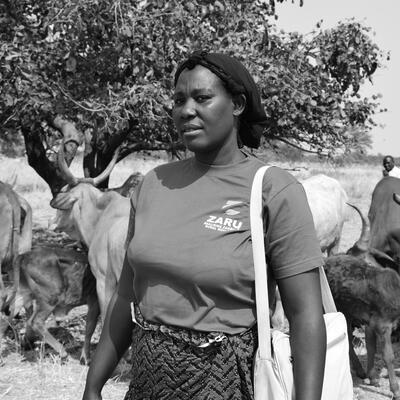
ILRI and Assam state government risk communication workshop on milk and pork value chains
A two-day risk communication workshop by the International Livestock Research Institute (ILRI) and Assam’s Animal Husbandry and Veterinary Department (AHVD) explored ways of better managing human health risks from milk and pork products in the state. Held on 7–8 December 2023 in Guwahati, the workshop deliberated on approaches to risk assessment, risk communication and risk management in the context of food safety. Javir Rahul Suresh, Indian Administrative Service (IAS), Director, AVHD & Dairy Development Department (DDD) and Abhijit Baruah, Food Safety Commissioner, Government of Assam (GoA) graced the workshop with their presence and expressed their views on the strong collaboration between ILRI and AHVD, GoA.
This workshop came on the back of a risk assessment study conducted by ILRI in the informal dairy and pork value chains of six out of the 18 selected districts where the World Bank-aided Assam Agribusiness and Rural Transformation Project (APART) project is implemented by ADVD and the DDD. Conducted in 2022–2023, the study assessed the operations, contributions, knowledge, attitudes, and practices of informal value chain actors, with a specific focus on assessing risks to human health.
From the information gathered, the study team aimed to generate knowledge and capacity among informal value chain actors on producing and trading safer quality milk and pork. On the consumer side, the aim was to create awareness about the importance of product quality and proper handling. Based on this, the tools in the project’s risk communication plan would be more outcome-oriented and effective, and the two-day workshop in Guwahati was part of this effort.
A total of 65 participants, mainly district veterinary and dairy officers from AHVD and DDD, took part in the workshop. The resource persons included ILRI’s Delia Grace (principal scientist), Florence Mutua (scientist) and Ram Deka (scientist).
As an introduction, Deka highlighted the process of assessing, communicating and managing risks to human health from foodborne hazards. He also informed the gathering of the initiatives undertaken under APART to reduce the safety risks from milk and pork.
Anupam Gogoi, state food analyst in the Government of Assam, shared the ongoing efforts of the state’s Food Safety Commissionerate under the Food Safety and Standards Authority (FSSAI) of India, and guided the workshop participants on the online registration process for the same. He also highlighted the challenges associated with integrating informal actors into the licensing and registration system of the FSSAI: ‘Small business have expressed concerns over financial constraints, lack of technical knowledge, communication barriers and other challenges in keeping up with FSSAI compliance, but we are working with them to resolve these issues.’
Grace led the first technical session, presenting a risk analysis framework and discussing the latest developments in food safety research, global approaches to risk assessment, risk ranking and risk prioritization in designing deeper and more comprehensive quantitative risk assessment studies. Another technical session was delivered by Mutua, who focused on different hazards present in milk and pork value chains, including microbiological, antimicrobial and pesticide residues, antimicrobial resistance and aflatoxins.
Following this, Deka facilitated a discussion on the informational pamphlets drafted by ILRI, covering human health risks associated with adulteration, antibiotic, pesticide and aflatoxin residues, and microbial load in milk and pork. The discussion also included the preventive measures necessary to protect human health at various levels of the value chain.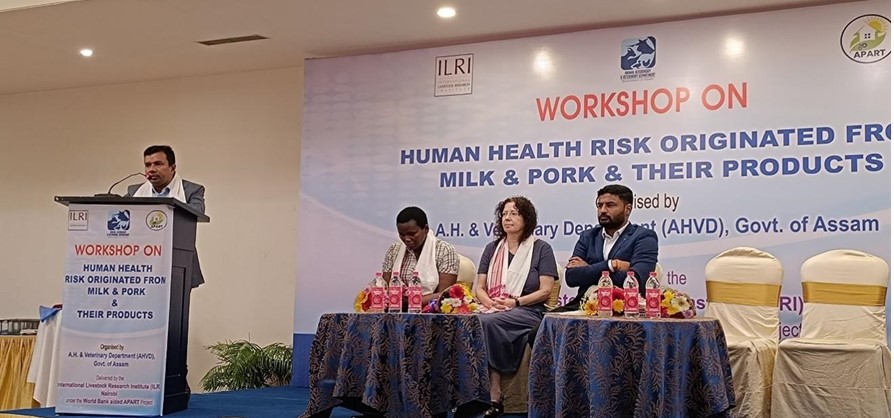
Part of the inaugural session of the training workshop (photo credit: ILRI/Ram Pratim Deka).
During a technical session on risk communication, Grace drew examples from several countries to illustrate effective strategies for handling disease outbreaks on a public platform and how the media addresses such situations. She shared her experience of a collaborative article with a credible source, National Geographic, emphasizing the positive impact it had on portraying an experiment related to trypanosomiasis-immune genetically modified cows in the media.
In conclusion, Grace reminded the attendees that ‘risk communication messages should adhere to the seven principles of risk communication STARCC (simple, timely, accurate, relevant, credible, consistent) and follow the KISS (keep it simple and straight) principle’.
This session was complemented by a presentation from Himadri Pal, a PhD researcher at the University of Greenwich, focusing on the development of effective and targeted communications. Pal stressed the importance of maintaining a balance between images and text, as well as readability in risk communication infographics.
On the second day of the workshop, Deka presented the key findings of the risk assessment study conducted by ILRI on the informal milk and pork value chain in Assam. The laboratory analysis of milk and pork samples found a concerning qualitative presence of antibiotic residues, pesticide residues, aflatoxins and various pathogens (including Escherichia coli, Staphylococcus aureus, Salmonella spp, and Listeria spp) in the value chains. The session concluded with comprehensive recommendations for follow-up actions.
Grace provided valuable insights into risk ranking methods and presented data from different regions of India. She guided participants in developing a qualitative risk analysis using a risk analysis matrix. To enhance understanding, a hands-on session divided participants into groups that were tasked with identifying hazards in common foods such as milk, pork and fish, categorizing their presence as low, medium or high. Following this, each group presented their findings, with an open discussion.
Bekzod Shamsiev, task team leader at the World Bank, engaged the participants on upcoming interventions on African Swine fever (ASF) management in Assam under APART. And Javir Rahul Suresh, director of AVHD and DDD, emphasized that the lessons from the workshop would be applied for the benefit of the state.
Understanding the steps needed at each value chain level to minimize the spread of diseases and safeguard consumer health was a key takeaway from this workshop. The collaborative efforts fostered during the training are expected to result in more robust strategies for managing human health risks associated with milk, pork and their products.
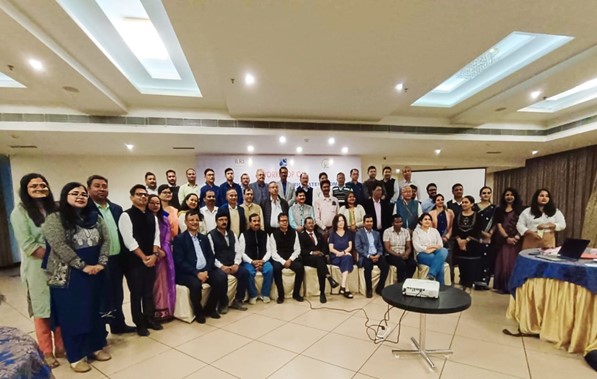
Group photograph of participants and resource persons at the training workshop (photo credit: ILRI/Ram Pratim Deka).





